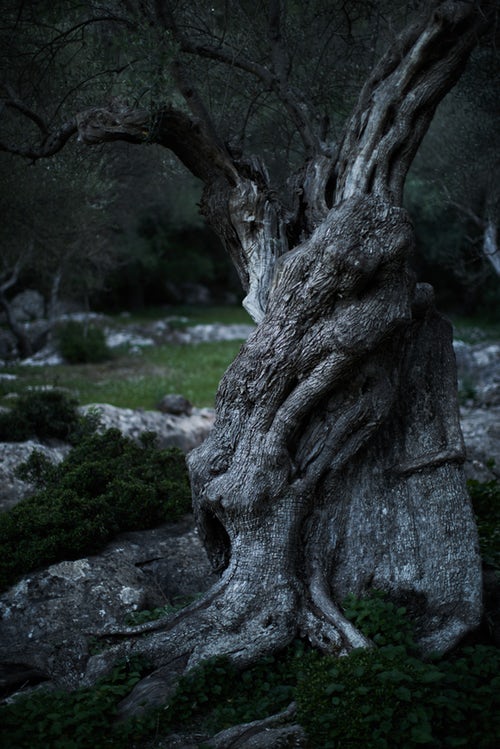I’m doing a lot of meditating today. Actually, I’m spending most of the day reminiscing and meditating on marriage. Specifically my marriage, and the 35 years of wedded bliss my husband and I are celebrating today.
Has it always been wedded bliss? No. Sometimes it’s been downright painful, tough, agonizing. For both of us.
At some points I’m sure both of us have asked ourselves whether we married the “right” person. Or questioned whether we should have married at all.
Indeed, sharing life with someone else—when you need to compromise, when sometimes it’s 90% give on your end and the other person is in total receive mode, when family and financial stress, extreme illness, overwork and exhaustion bear down on you and you feel totally alone in your anguish—can be difficult. It can stretch you beyond what feels like your limit.
But it can also be the most rewarding experience. Sharing day-to-day life with someone else. Laughing with them, crying with them, planning, strategizing, exploring, hoping and laboring side-by-side with them. Shooting for the stars and reaching them together. Suffering with them. Growing with them. Compromising. Having little clones of both of you and raising them to be bigger or better clones. Being fruitful and multiplying, in all areas of life.
I have the opportunity to spend all day meditating on it—retracing when and how we started, where we’ve been, what we’ve done together, (I highly recommend doing that. You’d be surprised at just how much you’ve managed to accomplish together.), what we want to accomplish together, where I hope we are next month, next year, in five years and beyond. God willing.
And I’ll be thanking God a lot in the meditation. He’s brought us through some tragedies and difficulties we never could have weathered or survived without Him.
I’ll be meditating alone because my beloved has to work. Usually we’d make sure we both have the day off, and you think we’d make sure that happened again for such a BIG year, but we’re going to be heading out of town in a few days to breathe some cool mountain air, do some pilgrimage training, and making our marriage and family assessment, a yearly ritual for us. If we don’t know where we’ve come from or where we want to go, any path will get us somewhere.
But we aren’t satisfied with just “somewhere.” We want to have some idea where we’re going, or would like to go in our married life.
Get away from normal to clear your mind and reconnect—
Getting away from our homestead, into a different, relaxing environment helps us focus and spend uninterrupted time reflecting, analyzing, praying and planning. And we’ll be going on that special pilgrimage soon, so that’s another event we have to look forward to, to celebrate all these years together.
So I’m spending the day prepping for our getaway, asking myself where I’d like to see me, us, and, yes, my beloved, in another year. In the three major areas of life:
Physical
Emotional
Spiritual
Do some serious talking and encouraging—
And I want my beloved to tell me where he’d like to see me in that time too. Nothing encourages a husband or wife more than having the support of their spouse, and then hearing how proud they are of you. Generous atta girl and atta boy complements will be liberally verbalized.
Dig in and identify—
We’ll peel back layers in the onions of faith, family, and work. Identify which onions are getting old or stinky, or have rotted or dried out. Which onions need to be planted and nurtured, and which onions need to be tossed out and relegated to the past.
Celebrate!
We’ll end today with a special candlelight dinner concocted at home. Something we used to do in our young-and-broke days. Something we’ve come to realize in our old-and-secure days was more meaningful, memorable, and enjoyable than dropping a wad at a 5-star restaurant, although we’ve enjoyed those celebrations too. We’ll make dinner together and break out the wedding china and crystal and toast ourselves. And praise our Lord who has bound us securely together by His mighty hand and love.
Just thinking about all of that right now, as I write this, makes me happy. Planning the future together is thrilling, even when we don’t always see eye-to-eye; even when one of us is a little more enthusiastic, or pessimistic, about the future. After all these years we have learned to hope all things. Together.
And that’s what I’m celebrating most. Togetherness. Sustainability. Love. In its purest form.
Unconditional. From both sides of the marriage aisle.
Forgive me if this sounds terribly arrogant, but here’s to us!
NEXT WEEK: We’ll return to our brief overview of the different worldviews that have shaped our thinking and politics, often unintentionally. They’re worth knowing and analyzing, so you can better understand how people’s beliefs and views are shaped, and how your faith may have been tainted by some of the teachings.
Until then, thanks for letting me indulge myself in celebration. And if you’re looking for ways to recharge your relationship, I encourage you to do an onion-peelback together. But a word of caution: you must be willing to listen when the other person shares their heart, without assessment or snarky, too-quick comebacks. Listen in a way that encourages them to talk. Let them be vulnerable. That’s one way you can encourage them to hold your heart gently, and know you’re holding theirs.
Until next week!
Blessings,
Andrea
May you prosper in all things and be in health, just as your soul prospers (3 John 2).
Photo by David Kokainis





